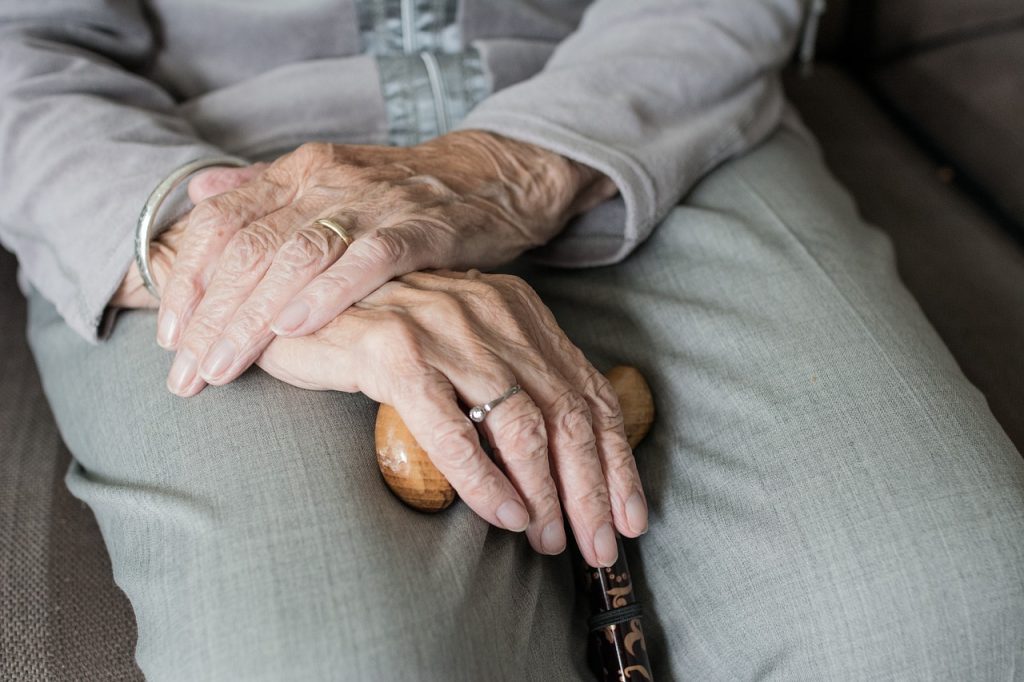All fields are required
Posted in Legionella,Legionnaire's disease,Outbreaks & Recalls on February 16, 2025

The Vermont Department of Health is investigating a Legionnaires’ disease outbreak at Village at Cedar Hill in Windsor Vermont. Legionnaires’ disease is a serious and preventable illness, particularly dangerous to the elderly and those with certain health conditions.
What do we know about the Legionnaires’ disease outbreak at the Village at Cedar Hill assisted living community?
What exactly is Legionnaires’ disease and how does it spread?
How do I know if I have Legionnaires’ disease?
Follow along for this, and other important information about the current Legionnaires’ disease outbreak.
The Vermont Department of Health published a Health Advisory on January 29, 2025 to announce that the department is investigating a Legionnaires’ disease outbreak associated with the Village at Cedar Hill assisted living community.
The Village at Cedar Hill, located at 92 Cedar Hill Dr., Windsor, Vermont 05089, is part of the Cedar Hill Continuing Care Community.
So far, six cases have been reported in this outbreak.
According to health officials, exposure may have occurred “as recently as January 20, 2025,” leaving outbreak investigators reason to believe that additional cases may be identified in this outbreak.
Legionnaires’ Disease Exposure
The Village at Cedar Hill
92 Cedar Hill Dr., Windsor, VT 05089
Monitor Symptoms, Additional Cases Likely
The Vermont Department of Health continues to work with the Cedar Hill administration staff to monitor the situation and provide appropriate public health recommendations. In the interim, the facility has implemented certain measures in an effort to reduce the risk of possible exposure to Legionella bacteria (the germ responsible for Legionnaires’ disease). As the potential source is the facility’s water system.
Legionnaires’ disease is a pneumonia-like illness caused by a bacteria called Legionella. It occurs when the Legionella bacteria make their way from a water source into the lungs.
These microscopic germs often live in natural water environments like lakes, streams, and rivers. In these environments, infection is rare. Infection from natural water sources is primarily caused by aspirating water into the lungs while in the water.
If there aren’t natural water environments around the Village at Cedar Hill assisted living community, how did those six people get sick? Is it contagious?
This brings us to our next topic. How Legionnaires’ disease spreads.
Fortunately, Legionnaires’ disease is not contagious. In fact, person-to-person transmission almost never happens.
The Legionnaires’ disease most people think about occurs when these bacteria grow in man-made water systems. Especially those with the potential to aerosolize water droplets into the air. This is because those aerosolized droplets are small enough to inhale into the lungs, but large enough for bacteria to hitch a ride.
Any water system application that aerosolizes or mists water can potentially spread Legionnaires’ disease. Several of these potential sources can be found at the Village at Cedar Hill.
The most common sources of Legionnaires’ disease that spread Legionella bacteria include:
Anyone exposed to Legionella bacteria can become infected and sick with Legionnaires’ disease. However, certain groups of people are more vulnerable to infection.
As with most illnesses, those with a weakened immune system are at greater risk of becoming sick if exposed.
Those who smoke or have smoked in the past, as well as people with chronic lung conditions are also more likely to become sick if exposed. Conditions like Chronic Obstructive Pulmonary Disease (COPD) and emphysema also put people at greater risk.
Age can sometimes be a factor. People over 50 years of age are also in the higher risk category.
Those who have visited, worked, or stayed at the Village at Cedar Hill assisted living community should monitor themselves for symptoms.
Legionnaires’ disease can be very serious. In fact, the Centers for Disease Control and Prevention (CDC) says that 1 in 20 people exposed to Legionella bacteria will become sick. About 1 in 10 people who becomes sick with Legionnaires’ disease will die. In a healthcare facility setting, this statistic increases to a scary 1 in 4 fatality rate.
Healthcare providers in the area are being advised to test patients who present respiratory symptoms for this specific bacterium. Additionally, they are advised to continue treatment while waiting for confirmatory results.
Legionnaires’ disease can be tricky to diagnose. This is because symptoms are nearly indistinguishable from other types of pneumonia. Legionnaires’ disease treatment is more successful with specific antibiotics and treatment protocols. So accurate diagnosis is key to faster recovery.
Common Legionnaires’ disease symptoms include:
While not as common, other symptoms may include nausea, diarrhea, and/or confusion.
Most of the time, symptoms begin within two weeks of exposure. Though in some cases, symptoms onset could be as early as two days or as late as several weeks following exposure.
If you have become sick following exposure to Legionnaires’ disease at the Village at Cedar Hill assisted living community, The Lange Law Firm, PLLC has a Legionnaires’ disease lawyer that can help!
The Lange Law Firm, PLLC has successfully represented Legionnaires’ disease cases just like yours, and they can help you too. Legionnaires’ disease is a completely preventable illness often occurring due to lapses in sanitation protocols or other preventative measures.
Call (833) 330-3663 or send an email for a free, no obligation consultation to go over the details of your situation and determine if you have a legal case for financial compensation.
By: Heather Van Tassell (Contributing Writer, non-lawyer)